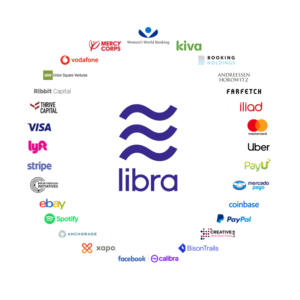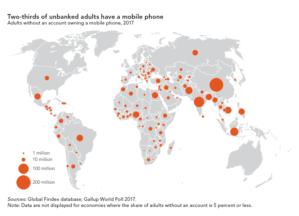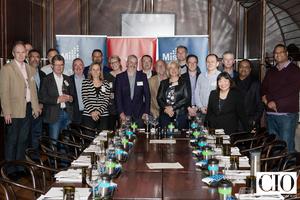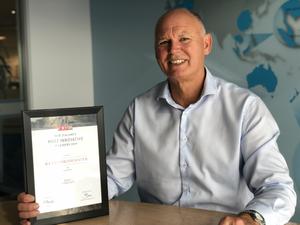 Credit: Facebook
Credit: Facebook
Multi-national regulatory pushback against Facebook's effort to create a cryptocurrency payment network is slowing the project and causing supporters such as Visa and Mastercard to back away, according to sources familiar with the situation and a published report.
Along with the initial announcement of its Libra digital currency and Calibra online digital wallet to store it, Facebook earlier this year released the names of 27 founding companies who signed on to become part of the non-profit Libra Association. The association was formed to help construct and manage the blockchain-based payment network.
Libra Association members such as Visa, Mastercard and others are reconsidering their involvement as pressure from U.S. and European regulators builds according to a report in the Wall Street Journal.
One person directly familiar with the situation said Facebook's Libra team is "overwhelmed now coping with regulator pushback" and it is slowing innovation and implementation; earlier remarks by Facebook CEO Mark Zuckerberg may have alluded to the same situation.
 Facebook
Facebook
Images of the Calibra digital wallet app.
Libra is currently scheduled to go live in 2020.
"I think between Zuckerberg's statements and that the staff there are consumed with regulatory pushback, it's not clear to me what direction they'll take moving forward," said Avivah Litan, a vice president of research with Gartner. "I think Libra could be delayed or trimmed down. I'd hope they can move forward in nations where there is no regulatory pushback."
Members of the Libra Association have been asked to attend a meeting in Washington, D.C., on Thursday, according to The Washington Post. Those same Libra representatives are scheduled to meet in Geneva to review a charter for the Libra Association and appoint a board of directors, according to a memo reviewed by The Wall Street Journal.
Last month, French and German regulators became the latest to voice concern over Libra, saying it could threaten the Euro's value and unlawfully privatize money. U.S. regulators have offered up their own concerns about cryptocurrencies and the ability to mask transactions behind the anonymity of encryption.
"Governments can't control what goes on on blockchain. That's why they're so threatened by it," Litan said. "Libra will jumpstart blockchain and cryptocurrency, but if it doesn't happen, there are still other cryptocurrencies out there. The technology is maturing. You can't control it."
 Facebook
Facebook
Members of the Libra Association, tasked with governing Facebook's permissioned blockchain network.
That doesn't mean governments aren't trying to control it.
Russia, Saudi Arabia and other Gulf states are attempting to regulate cryptocurrencies or roll out state-approved digital currencies based on blockchain. China has made it clear it wants a national cryptocurrency to compete with the world's de facto business currency - the U.S. dollar.
China Merchants Bank International (CMBI), a wholly-owned subsidiary of China Merchants Bank, today announced its partnership with layered blockchain network Nervos to co-develop and launch decentralized applications for financial services.
Last year, CMBI made a strategic investment in Nervos' first round of financing, which totaled $28 million and included participation from other institutional investors like Sequoia China and Polychain Capital. CMBI plans to participate in Nervos' upcoming public token sale, which is expected to take place on Oct. 16 via CoinList.
Litan said she doesn't understand government concern about Libra over anonymity tied to possible money laundering, since Calibra digital wallet accounts would be directly tied to Facebook users; if the government wanted, it could subpoena those records.
"There is valid concern about cryptocurrencies like bitcoin because they can't always be traced to the owner, but Libra is not anonymous. You've got a Facebook account. You're anything but anonymous," Litan said.
Libra and other cryptocurrencies backed by fiat currency, such as JP Morgan's JPMCoin, also have the potential to serve a vast population of those in developing nations who don't have access to banking services.
Globally, 1.7 billion adults or 30% of the world's population remain unbanked, yet two-thirds of them own a mobile phone that could help them access financial services, according to a 2018 report from The World Bank.
 The World Bank
The World BankThe highest global economic growth rates in the next 50 years will come from Africa, where mobile money is already driving higher financial inclusion rates in Sub-Saharan region, according to the World Bank.
Coffee farmers, for example, don't have access to the world's marketplaces, and often have only one purchaser who may or may not pay the market's going rate.
GrainChain, a blockchain-based supply chain is currently piloting its distributed network and cryptocurrency to enable roughly 10% of Hondruas's coffee growers (about 12,000 farmers) to trade and be paid online.
"When coffee farmers don't have access to formal financial systems and formal contracts for purchase, they are the ones pushed down in the industry," said Luis Macias, CEO of blockchain-based supply chain service GrainChain. "One of the larger focuses in the overall industry...is to find solutions to not only have more financial inclusion but enhance the ability for coffee producers to have a marketplace."
Litan believes Facebook has invested too much time and money developing its Libra network to drop it and will likely roll it out in nations where it's not seeing regulatory pushback; that could also open it up even to users in the U.S. and Europe.
"People can jump onboard in any country they live in by circumventing IP-address matching. You can log-on through TOR. You can disguise where you're coming from these days," Litan said. "Faceook will probably have a phased rollout in countries where they're not seeing this pushback."
Join the CIO New Zealand group on LinkedIn. The group is open to CIOs, IT Directors, COOs, CTOs and senior IT managers.







